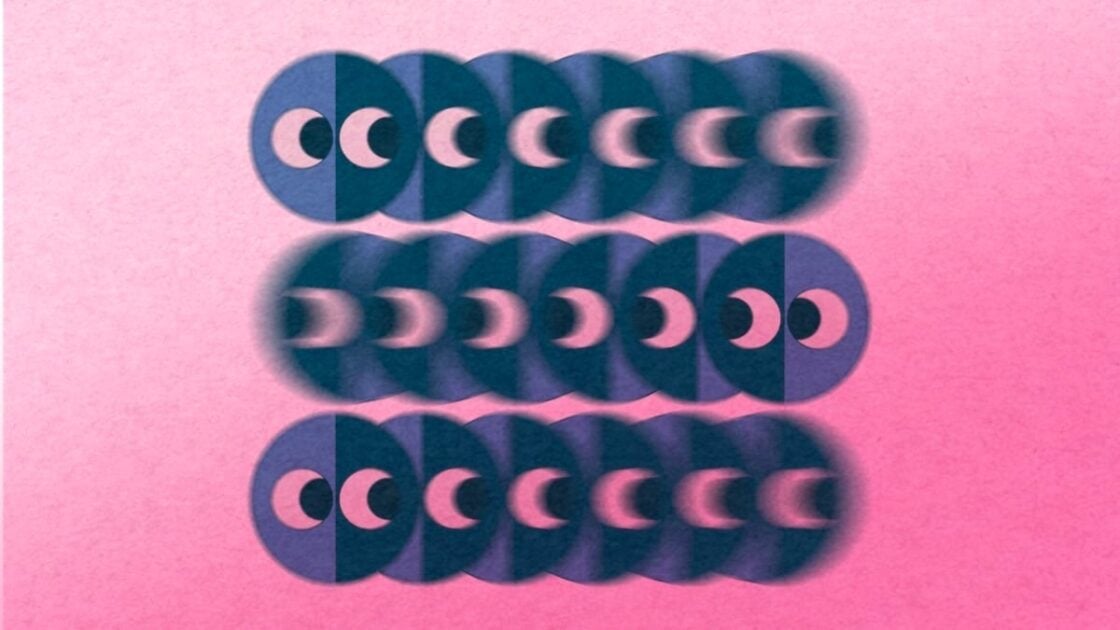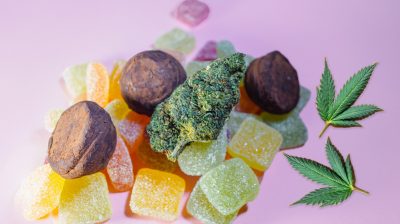How to cope with a ‘bad trip’ or high when using drugs
If you or a friend is experiencing a ‘bad trip’ you can use this advice to navigate the complex and distressing feelings it may bring up.

People will often use drugs like mushrooms, LSD, MDMA, cannabis and ketamine to feel a sense of euphoria, excitement and wonder. Users will often report that they feel more sociable, find the world around them more fascinating and feel more connected to the universe and others around them when high on certain drugs.
But the feelings caused by recreational drug use are not always positive. The effect a drug will have on you can be difficult to predict, particularly when it comes to psychedelics. Sometimes, users may find themselves feeling panicked, depressed and paranoid during a drug high. This is often referred to as a ‘bad trip’.
What is a ‘bad trip’?
A ‘trip’ is a term used to refer to a drug high. It is most often associated with psychedelic drugs, such as mushrooms and LSD, and may include effects like visual hallucinations or ‘visuals’. The act of being on a trip is called ‘tripping’. Some users also report tripping while taking drugs such as MDMA and ketamine. These drugs can have some psychedelic properties, though they are not typically called psychedelics.
Bad trips are most often associated with psychedelics. It is possible to experience negative emotional side effects with a lot of drugs, even ones that aren’t typically considered to produce a ‘trip’. If you or someone you know is experiencing a bad trip, here are a few ways you can minimise how unpleasant the experience is.
Ensure the person tripping is physically safe
Before proceeding with harm reduction advice, it is important to make sure that the person in question is physically safe. You can use this guide to determine whether a person is experiencing a drug emergency.
When in doubt, it is always best to seek the advice of a medical professional, and to be totally honest with this professional about what the person has taken and how much they have taken.
Being high on drugs will often impair a person’s judgement. In some cases, drugs may also interfere with depth perception, making falls more likely. To minimise the chance of accident or injury, keep the person tripping away from high places, bodies of water, traffic or other physical dangers.
Take the person to a calm, safe environment
If the person experiencing a bad trip is not already in a safe, controlled environment, such as their home or the home of a friend, try to bring them to a place that is peaceful and quiet.
Loud, public settings such as festivals can be difficult to tolerate when under the influence of drugs such as psychedelics. If you are in a public place, you should bring the person tripping to a quieter spot to help them feel more calm. Try to avoid leaving the person on their own.
Some music festivals will have welfare tents or areas where you can bring people who are having a bad trip. The HSE operates welfare tents at some Irish music festivals with on-site volunteers, as do some harm reduction organisations such as Help Not Harm and PsyCare Ireland.
Stay hydrated
It is a good idea to get some water for a person experiencing a bad trip and advise them to take slow sips. They do not need to chug massive amounts of water in a short period of time, taking sips of water is best. Gentle hydration can help with feelings of nausea, and can help to rehydrate the person if they have vomited during the course of their high.
Talk about how you are feeling during your bad trip
If you are experiencing a bad trip, try to be as open as possible about how you are feeling with a trusted friend or loved one. Sharing your experiences can reduce the distress you may feel and may help pull you out of whatever emotional spiral you are experiencing.
If you are caring for someone having a bad trip, gently ask them how they are, and tell them it is okay for them to share and that you would be happy to listen to them. Telling them that it is okay and that you would be happy to listen may help them feel less self-conscious about opening up.
Equally, try not to push someone to speak if they don’t feel comfortable doing so. It is best to just let them know you are here for them and let them make their own choice.
All trips are temporary
It can be helpful to remember, or to remind someone you are caring for, that a drug high will eventually wear off. Drugs can influence the perception of time, so it is easy while experiencing a bad trip to worry that the trip will last an inordinately long time, or will never subside. Reassure the person you are taking care of that what they are feeling will not last forever and that the high will eventually wear off.
Avoid self-medicating
It may be tempting to use other drugs, such as cannabis or alcohol, while experiencing a bad trip, as you may assume that these substances will help you calm down. Introducing more drugs is risky, as how drugs interact with each other isn’t always very predictable, especially if the person having a bad trip has already taken multiple substances, such as mixing LSD and MDMA.
Benzodiazepines (better known by brand names such as Xanax or Valium) are not capable of stopping a psychedelic trip, despite what some myths may suggest. If you present to a doctor or paramedic, they may give you this kind of medication to help you calm down. Introducing prescription drugs should only be done under medical supervision. If you have been prescribed a drug such as a benzodiazepine, only ever use it as indicated by your prescribing physician.
Try some grounding techniques
If you find yourself distressed or panicking while high on drugs, using grounding techniques can help prevent you from getting too overwhelmed by your emotions.
One type of grounding technique called the 54321 technique and relates to the five senses. If you feel like you would not get distressed by thinking too much about your surroundings, you can try these steps:
- First, look around and pick out five things that you can see. In a living room, you might pick a carpet, a television, a mug, a gaming console and a plant. It can help to say each item out loud.
- Look for four things you can touch. This could be the feeling of clothes against your skin, or the grass under your feet, depending where you are. You can reach out and touch an object nearby and think about the sensation.
- Acknowledge three things you can hear. Try to focus on things outside of your body, such as the rumbling of a nearby train track, the sound of an extraction fan and the caw of a bird.
- Think of two things you can smell. If you are at home, you may be able to smell the scent of shampoo on your hair or the lingering smell of whatever you cooked for lunch. Outdoors or at a festival, you may smell grass or the smell of food being cooked at a food stall.
- Think of one thing you can taste; this could be the lingering taste of something you recently ate or drank. Alternatively, if you have a piece of gum, you could take the chance to chew a piece and focus on the taste and sensation
Use breathing exercises
There are also a number of breathing techniques that are useful for anxiety in general that may help a person experiencing a bad trip:
- ‘Box breathing’, or square breathing, involves taking deep breaths (that cause both your chest and stomach to move) and timing your breathing. To do this, inhale through your nose for four seconds, hold your breath for four seconds without exhaling, and then slowly exhale for four seconds. Repeat until you feel more centred.
- Another technique is the 4-7-8 technique. This involves inhaling through the nose for four seconds, holding your breath for seven seconds and then exhaling through the mouth for eight seconds.
Stick together and implement a buddy system
A person having a bad trip is in a vulnerable position and should not be left alone. The gentle presence of another person can help them feel less afraid, while they may be inclined to panic if left by themselves. If you are having a bad trip, it may be tempting to run off by yourself, but it is always better to let a friend know how you are feeling and ask them to come with you.
Can a bad trip be avoided?
It is impossible to guarantee that you will not have a bad trip or drug experience, but some pre-planning can minimise the likelihood of it happening.
Some people who use psychedelics report introspective experiences while tripping such as confronting a past trauma. A good thing to consider before taking psychedelics is whether you feel prepared to deal with something like this should it arise, and what supports you might turn to if it does. If you do not feel emotionally prepared for that possibility, or feel like you do not have a support system, it may be better to avoid taking psychedelics or drugs in general.
If you do decide to use drugs, it is always advised to take them in a safe and controlled environment such as your home, especially if you have never taken a certain drug before. It is likely better to take drugs with others you trust around you as opposed to alone, so that you can ask for help should you need it.
In the case of psychedelics, some people recommend taking them with a ‘trip sitter’, a person who has used psychedelics before and who will remain sober during the course of your trip to monitor you if anything should go wrong.
Planning a trip
There are some steps you can take to make your drug taking experience as safe and pleasant as possible:
- Reflect on your mindset at the time and make sure you are in the right headspace to take psychedelics.
- Choose a calm environment, such as your home or a wide open space such as a garden.
- Avoid taking drugs alone and instead do them with people you trust.
- If you are new to taking psychedelics, take a low dose so that you are not too overwhelmed by the intensity.
- Make a plan of how you might spend your time during your trip.
- Minimise the need to venture into busy areas; ensure you have adequate food and water before starting and try not to have any reason to leave the safe, familiar space you have decided to trip in. Having snacks, water, a colouring book or other supplies on hand before your trip can help with this.
- Figure out before your trip who you will call or what you will do in the event of an emergency. Find out more about how to cope with a drug emergency here.
Support services
- Drugs.ie: Online information and support for drug and alcohol use. Includes a national directory of drug and alcohol services
- HSE Drugs, Alcohol, HIV and Sexual Health Helpline: Freephone 1800 459 459
- You can contact Youth Information Chat, an online service that can put you in touch with Youth Information Officers based all around the country, for more general information
- You can also contact the HSE’s Drug and Alcohol Helpline on freephone at 1800 459 459 if you want to discuss your cocaine use
Feeling overwhelmed and want to talk to someone?
- Get anonymous support 24/7 with our text message support service
- Connect with a trained volunteer who will listen to you, and help you to move forward feeling better
- Whatsapp us now or free-text SPUNOUT to 50808 to begin.
- Find out more about our text message support service
If you are a customer of the 48 or An Post network or cannot get through using the ‘50808’ short code please text HELLO to 086 1800 280 (standard message rates may apply). Some smaller networks do not support short codes like ‘50808’.






